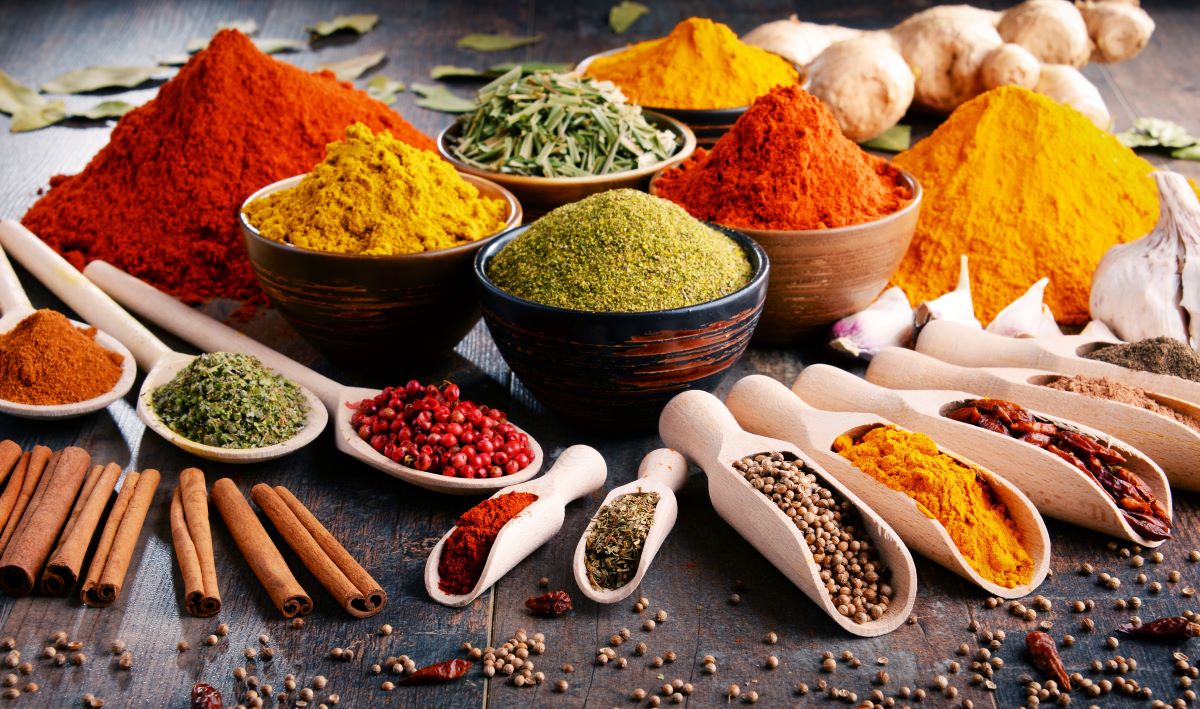The Essential Guide to Custom Flavors: Making Taste Your Champion

Taste is the No. 1 foundational driver for consumers when making food choices. If you subscribe to our blog, this isn’t the first time you’ve read that line – and we can almost guarantee it won’t be the last – because flavor is that important.
So now you’re probably saying, “OK Synergy Aromas, what exactly are custom flavors and how do I use them to make ‘taste’ my product differentiator?”
We’re glad you asked. Custom flavors are those designed customized to meet your requirements and the specific flavor profile you’ve selected that will appeal most to your target consumer.
The characterizing profile of a custom flavor can depend on several factors but is typically driven by the preferences of your target consumer. If your target consumer is adventurous then thinking outside the box with a novel profile could be what you need. However, if you’re looking to cater to traditionalists than perhaps something more familiar would be better. That’s the beauty of custom flavors, it’s driven by your specific needs.
Custom Flavors: Your Product’s Competitive Advantage
When it comes to delivering a product that people remember, differentiating the flavor is a must. Understanding the answers to the following questions will make it clear and set your product on the path to mouth-watering success. If you’re ready to start on your custom flavor journey, you can schedule a call with us now.
Why Should You Use Custom Flavors?
Flavor improves the profile of your product and enhances the taste. For example, let’s say you’re making a banana pudding using real bananas, adding flavor will strengthen the banana taste and enhance your overall product.
Custom flavor can also prolong the flavor perception, which often diminishes over time, thereby increasing shelf life. The third benefit to using flavor is to create differentiation. For example, if a customer tells us they want a poultry flavor, we can take it a step further by asking if they want it rotisserie, boiled, roasted, or baked and develop a customized flavor that delivers on those culinary characteristics.
At Synergy Aromas, “custom” to us can also mean adapting our processes to meet a customer’s requirements. A couple of years ago, we had a concentrated stock flavor project for a customer who required no preservatives or salt be used. Those restrictions required the flavor to be refrigerated, which was something new for us. We took it into consideration and were willing to accommodate their request by investing in refrigerated storage at our facility to meet their needs.
What Flavor Do You Want?
Here at Synergy Aromas, we start by asking our customers what flavor profile they want to create for their products. After all, custom flavors are all about making flavors specific to each customer and individual products.
One way we develop flavor is based on the gold standard or target flavor profile provided by our customers. The gold standard could be a delicious soup a great chef somewhere developed in their kitchen, for example, that a customer wants to commercialize. When commercializing a gold standard product, it is almost always different in its makeup than the original creation.
This is where flavor science comes in. In most cases, your flavor provider’s research and development team will take the spirit of the gold standard product and recreate its flavor in-house in a commercialized form.
How Do Regulatory Restrictions Change a Custom Flavor?
When creating custom flavors, working with your flavor company to ensure all regulatory and label restrictions are met is key. Like we said above, any flavor can be created, but if it doesn’t let you claim your product is organic, for example, and that’s your goal, the flavor is no use to you.
At Synergy Aromas, regulatory and customer-required restrictions play a pivotal role in our custom flavor development. In addition to asking what flavor you want to achieve, we also need to know what restrictions you have in place as part of the first step in the process. There are a host of restrictions today including:
• Organic
• Non-GMO
• Non-GMO Project Verified
• Panera Compliant
• Whole Foods Compliant
• Target Compliant
• Certified Vegan
• Vegan
Meeting these restrictions using available materials often requires flavor companies like ours to get creative, as some are more stringent than others. For example, Non-GMO Project Compliant is stricter than the standard Non-GMO certification. Certified Vegan dives deeper into ingredient documentation than standard vegan labeling. Companies like Panera, Whole Foods and Target have also developed their own list of acceptable ingredients. The Panera ingredient list has become the most requested restriction among our customers as of late.
How Are Custom Flavors Tested for Performance?
To ensure your custom flavor meets your taste and labeling requirements, we send a sample and all documentation to our customers for review. Doing so helps us both ensure the flavor not only meets your sensory evaluation but also that it works well in your application. Let’s say your product is pressure cooked, flavor can have a hard time surviving at those high temperatures.
At Synergy Aromas, we test your flavor in-house by applying the same method of preparation to ensure it withstands the process. We also conduct shelf-life studies on flavors, analyzing them to ensure they hold for a specific length of time. If one of our customer’s flavors lasts one year on the shelf and they want to extend it three to four months, our flavorists will conduct a study for them to determine whether or not they will extend the shelf life.
To aid in extending the shelf life, spray drying a liquid flavor can also be done to encapsulate it, turning it into a powder. One thing to note about spray drying flavors is that liquids are much stronger than powder flavors, so it will dilute the flavor and result in higher usage and cost because of the processing method. At Synergy Aromas, we offer spray drying at both our production facilities in Chicago.
Why Partner with a Flavoring Company?
While we acknowledge that working with a flavor company can come with challenges like cost, lead times and volume, partnering with an established company like Synergy Aromas that has flavor experts with decades of experience can give your product a competitive edge. Establishing a trusted relationship can also lead to valuable market insight, cost-effectiveness, and ingenuity.
The alternative to partnering with a flavoring company is to bring flavor in-house, which usually doesn’t make sense when you consider the supply chain and personnel required because it’s not cost-effective. And while we just scratched the surface of custom flavors in this article, our Custom Food Flavoring: The 8-Step Process to Get It Right Every Time blog goes more in-depth into custom flavor creation.
These two articles will help you determine if a partnership or vertical integration makes the most sense for you, but we are also here for you to schedule a call with us to learn more about custom flavors and how they can help make taste your champion!
insights

